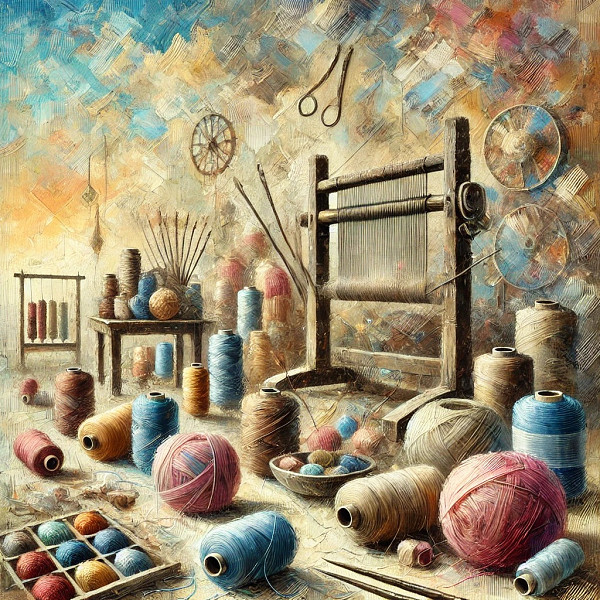
Trademark Class 23 of Nice Classification — the complete guide
Table: Main Services in Class 23
| Service | Description | Example |
|---|---|---|
| Yarns | Threads used for knitting or weaving | Cotton yarn, polyester yarn |
| Threads | Fine cords used for sewing or embroidery | Silk thread, embroidery floss |
| Specialty fibers | Yarns or threads with specific properties | Elastic threads, metallic yarns |
What is Trademark Class 23?
Trademark Class 23 covers yarns and threads used for textile purposes. This class is essential for businesses involved in producing materials for knitting, weaving, and sewing industries.
Examples include cotton yarn manufacturers, embroidery thread producers, and companies specializing in specialty fibers.
Class 23 ensures proper trademark classification for materials fundamental to textile production.
What are key features of Class 23?
Key features include threads and yarns made from natural or synthetic fibers, catering to diverse textile applications.
Class 23 for trademarks: a brief description
Class 23 encompasses yarns and threads used for making fabrics, garments, and other textile products. Businesses in this class play a vital role in the foundation of the textile and apparel industries.
Products in this class cater to manufacturers, designers, and individual consumers.
Practical examples of Class 23
Examples include companies producing silk threads, elastic yarns for sportswear, and metallic threads for decorative purposes.
What Does Class 23 Include?
Class 23 mainly consists of threads and yarns of diverse types utilized in the manufacture of textiles, embroidery, and sewing and hence are raw materials for fabrics, garments, and ornamental textiles.
Products Falling under Class 23
The class embraces special threads of fiberglass, elastic, rubber, and plastic for textile uses. These materials improve flexibility, durability, and strength for fabrics in a wide range of industrial and fashion applications.
Class 23 also comprises embroidery, darning, and sewing threads, including threads of metal for ornamental stitching, repair, and reinforcement of fabrics to give strength and ornamentation to fabrics.
The class also involves spun fibers like spun silk, spun cotton, and spun wool. In respect of these, different yarn types are prepared through processing in these natural fibers that may later on be used in weaving or knitting fabrics. Threads and yarns of Class 23 vary very broadly in textiles to ensure basic materials involved within the textile and fashion industries have appropriate classification.
Trademark Class 23 does not include
While Class 23 primarily covers threads and yarns for textile use, some types of threads, having special applications, are specifically excluded and classified under other classes of trademarks. These exclusions help differentiate between textile-related materials and those used for industrial, medical, or decorative purposes.
Threads falling within specific threads for uses other than textiles are excluded from classification under Class 23. Identification threads used within electric wires, for example, have a utilitarian function within electrical apparatus and are classified under Class 9. Surgical threads used in operations fall under Class 10, while threads of precious metals used in jewelry are classified under Class 14, rather than any textile class.
Additional Exclusions
Threads not for use in the manufacture of textiles are also outside the scope of Class 23 and are classified according to their material. For example, threads of metal for binding belong to Class 6; threads for binding, not of metal, are in Class 22. Elastic threads and threads of rubber or plastics, fibreglass threads are, respectively, in Class 17 and Class 21, as their use is always industrial, structural, or decorative and never in textile manufacturing.
Exclusions like these assure that businesses effectively classify their products based on proper use and material composition, ultimately easing the process of trademark registration.
Full list of goods or services
230031 — chenille yarn,
230006 — coir thread and yarn,
230002 — cotton thread and yarn,
230015 — darning thread and yarn,
230019 — elastic thread and yarn for textile use,
230003 — embroidery thread and yarn,
230017 — fibreglass thread for textile use / fiberglass thread for textile use,
230005 — hemp thread and yarn,
230011 — jute thread and yarn,
230013 — linen thread and yarn,
230014 — rayon thread and yarn,
230018 — rubber thread for textile use,
230009 — sewing thread and yarn,
230007 — silk thread and yarn,
230008 — spun cotton,
230016 — spun silk,
230010 — spun thread and yarn,
230012 — spun wool / worsted,
230032 — thread of metal for embroidery,
230020 — threads of plastic materials for textile use,
230004 — woollen thread and yarn,
230001 — yarn* / thread*.


